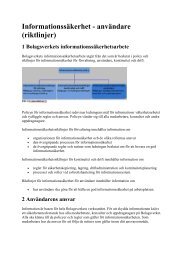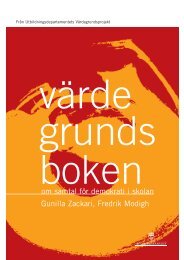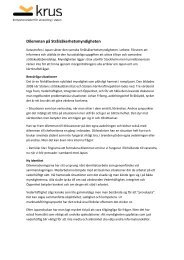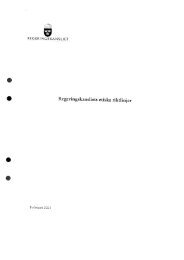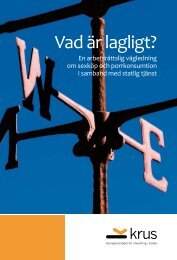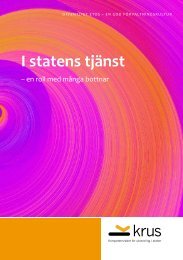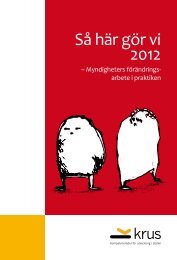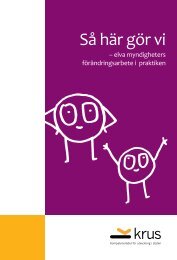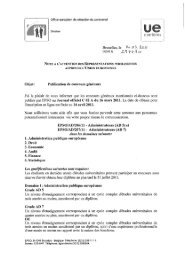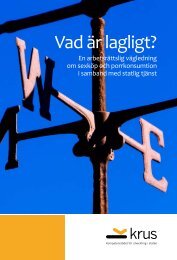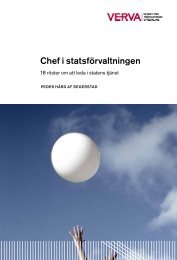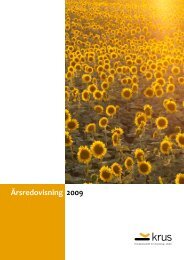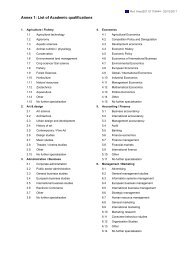Dialogkompetens i skolans vardag - Publikationer - LTU - Luleå ...
Dialogkompetens i skolans vardag - Publikationer - LTU - Luleå ...
Dialogkompetens i skolans vardag - Publikationer - LTU - Luleå ...
You also want an ePaper? Increase the reach of your titles
YUMPU automatically turns print PDFs into web optimized ePapers that Google loves.
Relation between tools used in action research and the ZPD 551<br />
classes of pupils in all stages of compulsory schooling from pre-school to ninth-grade<br />
classes. The composition of the project groups included a mixture of participants<br />
from the different schools. Annual group sessions included the facilitator from the<br />
university. The introductory work took place over four days and included the following<br />
activities:<br />
(a) The project groups started with the participants assembled in one of the five<br />
schools hosting this particular group’s improvement work.<br />
(b) The introductory work gave the participants time to reflect on classroom work.<br />
Tools such as individual writing and facilitation were introduced.<br />
(c) The third tool introduced was shadowing. Teachers contributed to or participated<br />
in the shadowing of other teachers who were willing to be shadowed by<br />
their colleague observers.<br />
(d) All questions raised in practice during the shadowing sessions were used as a basis<br />
for formulating the prospective question to be studied in the collaboration.<br />
When the start-up phase was concluded, the procedures for change commenced:<br />
(e) Each teacher was responsible for implementing the change experiments in their<br />
own classroom. Individual writing, shadowing and video documentation were<br />
used and further developed at each school.<br />
(f) In between the physical meetings, each group had access to a cooperative writing<br />
forum on the Internet.<br />
(g) On four occasions each group had face-to-face meetings at different schools,<br />
which included shadowing and group sessions with the facilitator.<br />
(h) Together with the participating teachers, the headteachers at each school regularly<br />
organised literature seminars (critical friend meetings).<br />
(i) Additionally, and on an annual basis, several researchers were invited to give<br />
short lectures as an important element of inspiration and an input of knowledge.<br />
At the end of the three-year period, each group, as a community, made their own<br />
written evaluation. In relation to the initial questions that they had created, they chose<br />
a particular perspective from which to communicate their evaluated experiences in<br />
the form of a report produced as a piece of collaborative writing. As both writing and<br />
publication can be seen as an integral and important part in any action research<br />
project, the question of the voice represented in the telling of the stories of a project<br />
will always be important (Christensen & Atweh, 1998). It was therefore very important<br />
that the authentic voices of the teachers in this project can be read in their<br />
reports, which have now been published on the Internet. 4<br />
Zone of proximal development<br />
In the ZPD, a person’s competence is not of interest. Instead, the focus is on the<br />
potential of understanding and acting. In Vygotsky’s theories about the ZPD, children’s<br />
learning is in focus (Vygotsky, 1978, 1986). However, we would suggest that<br />
it is not only learning among children that can be described by using the theories of



